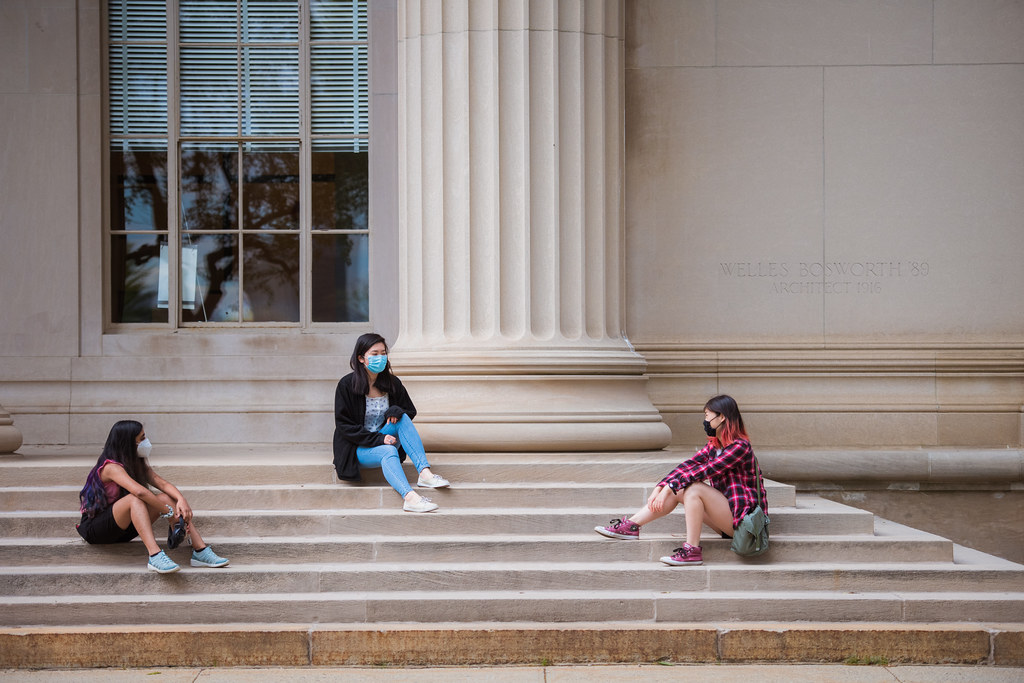Samplings
Overview
These are 6-unit subjects taught either once a week throughout the term or twice a week for half of the term. Specific topics for the subjects offered vary from year to year. For a student unable to sustain the commitment demanded by a regular twelve-unit class, the Samplings classes offer a less intensive, more discussion- and reading-oriented way of continuing literary study. Four Sampling subjects are automatically combined to create two 12- unit HASS subjects.

SAMPLINGS
21L.310 Bestsellers
Prereq: None
2-0-4 Can be repeated for credit; first half of term
Focuses on works that caught the popular imagination in the past or present. Emphasizes texts that are related by genre, theme or style. Books studied vary from term to term. May be repeated once for credit if content differs. Enrollment limited.
Currently offered this semester:
21L.310 Bestsellers (Fall 2024)
21L.315 Prizewinners and Laureates
Prereq: None
2-0-4 Can be repeated for credit; first half of term
Examines the work of major prize-winning writers or filmmakers. Texts and authors are chosen that have won such prestigious literary awards as the Nobel Prize, the Booker Prize, or the National Book Award, or films that have been feted at major international film festivals. Authors and works vary from term to term. May be repeated once for credit if the specific works studied differ. Enrollment limited.21L.320 Big Books
Prereq: None
2-0-4 Can be repeated for credit
Intensive study of a single major literary work or a very small set of related literary works. Emphasizes texts that encourage close analysis in a way that cannot easily be integrated into the regular literature curriculum. The Big Books taught in previous terms include Moby-Dick, Canterbury Tales, and the Faerie Queene. May be repeated once for credit if the works studied differ. Enrollment limited.
Currently offered this semester:
21L.320 Big Books (Fall 2024)
21L.325 Small Wonders
Prereq: None
2-0-4 Can be repeated for credit
Close examination of a coherent set of short texts and/or visual works. The selections may be the shorter works of one or more authors (poems, short stories or novellas), or short films and other visual media. Content varies from term to term. May be repeated once for credit if the works studied differ.
Currently offered this semester:
21L.325 Small Wonders (Fall 2024)
21L.338 Reading in the Original
Prereq: Permission of instructor
2-0-4 Can be repeated for credit; first half of term
Close examination of literary texts in their original languages. Language and texts studied vary from term to term. May be repeated once for credit if content differs.21L.339 Literary Translation
Prereq: None
2-0-4 Can be repeated for credit; second half of term
Studies the practices and theory of moving literary texts from one language to another. Student proficiency in other language(s) welcome but not required. May be repeated for credit if content differs.21L.340 Pleasures of Poetry
Prereq: Permission of instructor
3-0-3
Strengthens writing and reading comprehension skills. Students attend all public sessions of the Pleasures of Poetry readings and discussions as well as several additional classes. The poems chosen by the various moderators range across the history of literature, from ancient Chinese lyrics to contemporary texts. May be repeated for credit with permission of instructor.21L.345 On The Screen
Prereq: Permission of instructor
2-0-4 Can be repeated for credit
Examines works of film, television or other screen-based media, with emphasis on texts that are related by genre, time period, style, or director. Works studied vary from term to term. May be repeated for credit once with permission of instructor.21L.350 Science and Literature
Prereq: None
2-0-4 Can be repeated for credit
Examines intersections and channels of influence between the sciences and forms of imaginative literature. Addresses topics such as depictions of scientific experimentation in imaginative works, the history of scientific experimentation, and experimentation in literary works; the emergence of science fiction; and depictions of scientific practice in literature. May be repeated once for credit if content differs.
Currently offered this semester:
21L.350 Science and Literature (Fall 2024)
